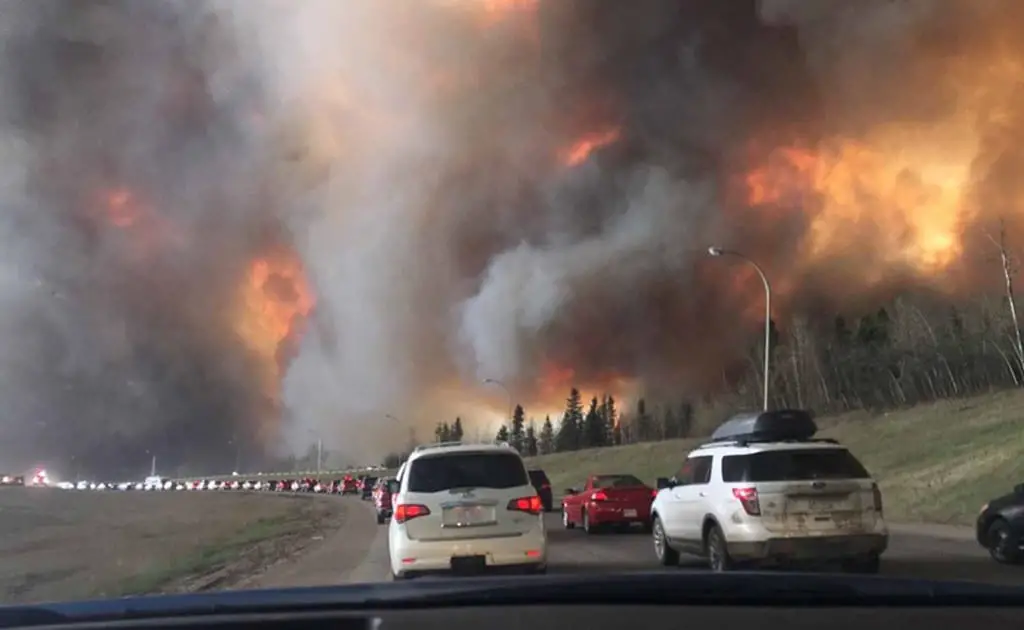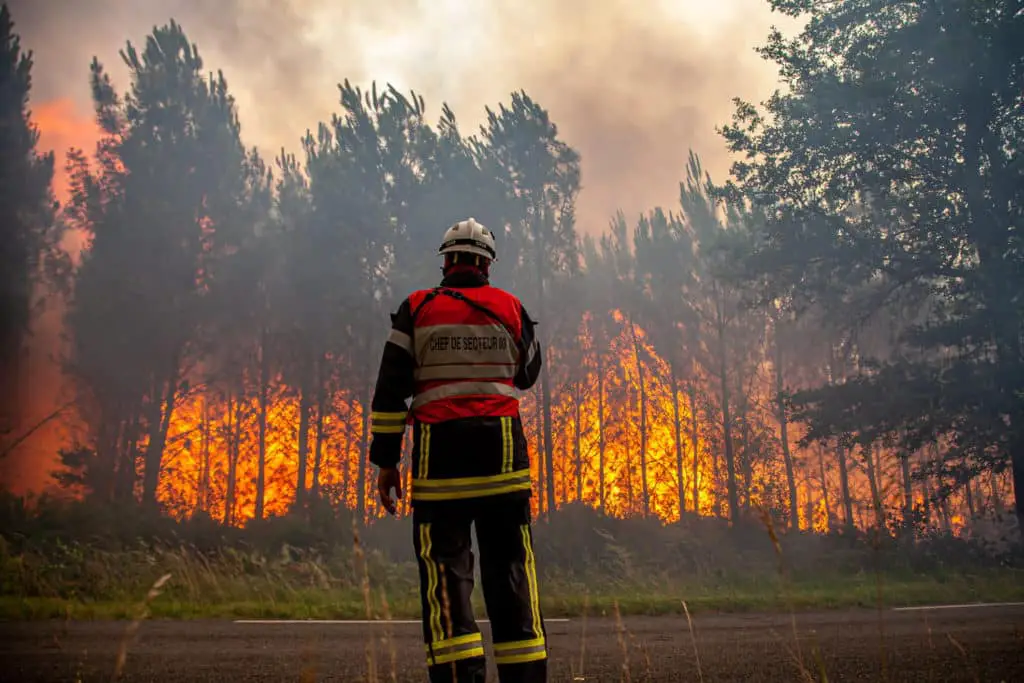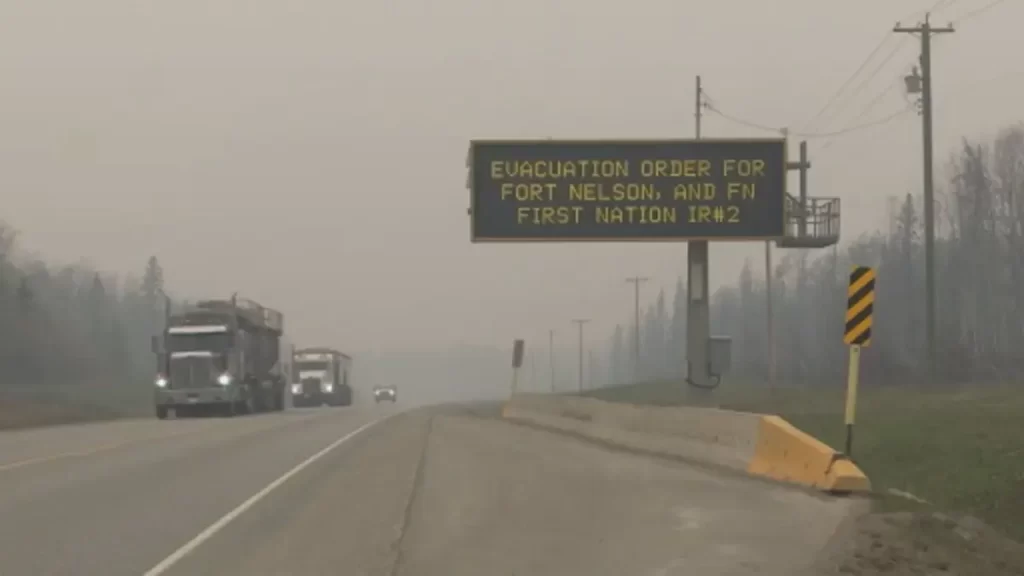News
Canada Wildfires Forcing Thousands to Flee Their Homes

Canada Wildfires that have been raging throughout the country for the past week have forced thousands of people to abandon their homes, with many unsure when they will be able to return.
Firefighters battling more than 100 wildfires across Canada may receive brief relief in some areas as a major mid-week storm moves through western and central Canada, bringing higher possibilities of rain and blasts of cool air.
Nonetheless, some dangerous fires are burning within miles of neighborhoods. Fire authorities warn that minor changes in weather or wind direction can suddenly put adjacent homes and businesses at jeopardy.
More than 6,000 people have fled Fort McMurray, Alberta, since Tuesday, as a 51,000-acre fire rages less than 5 miles from the city’s edge. Residents should count on being gone from their houses until at least May 21, and possibly longer, according to the regional municipality.
The fire near Fort McMurray remained active Wednesday, but winds were forecast to start pushing it away from the city and its key roadway, according to Alberta Wildfire Information Officer Josee St-Onge. Rain showers are expected to start Wednesday night and last until tomorrow, with a total rainfall of up to one inch.

Canada Wildfires Forcing Thousands to Flee Their Homes: CBC Image
Firefighters braving the flames of the wildfires
Firefighters have been working around the clock to keep the flames at bay, employing water helicopters with night vision. Firefighters, often defending their own villages, have also worked arduous and risky shifts.
“To the firefighters braving the flames to defend Fort McMurray and other areas of the province, we appreciate your heroic efforts more than we can say and we pray for your safe return,” the premier of Alberta, Danielle Smith, said on Wednesday.
For many Fort McMurray locals, the smoke-blackened skies and nervous evacuations bring back sad memories of “The Beast,” a devastating 2016 fire that forced 90,000 people to evacuate and caused billions of dollars in damage to homes and businesses.
Resident Jocelyn Routhier, whose neighborhood has yet to be told to evacuate, has observed from her back porch as the situation becomes disturbingly identical to the last disaster. She posted two uncanny photos of the fires, shot eight years apart.
“This is a déjà vu that I would prefer avoid. Let’s hope it doesn’t become a reality,” Routhier wrote in a social media post accompanying the photographs.
Jocelyn Routhier, a Fort McMurray homeowner, captured the 2016 and May 2024 flames from the same position on her porch.
Every day, new fires break out across Canada, and numerous out-of-control blazes threaten densely populated areas, leading scores of evacuated citizens to seek refuge in hotels, emergency shelters, and camp and RV sites.

Cooler temps, rain helping fend off wildfires: Image Global News
Anticipated Rains
Mackenzie Spenrath is one of roughly 5,000 individuals forced to evacuate the Fort Nelson area of British Columbia, where the 31,000-acre Parker Lake Fire is blazing barely 1.5 miles from the town. He told CNN that he has grown obsessed with watching news and surfing through social media, “trying to figure out if my town is still standing.”
Fort Nelson fire crews may benefit from less than an inch of rain anticipated Wednesday night and Thursday evening. However, the quantity of precipitation required to offset drought conditions and extinguish the fires is significantly greater, according to the British Columbia Wildfire Service.
“It’s not completely hopeless, obviously. But the fire is so close to town that it’s difficult to imagine anything but the worst,” Spenrath explained.
Extremely dry conditions are also causing issues for firefighters battling a fire that has reached within a mile of the Cranberry Portage town in western Manitoba. Approximately 580 individuals have been evacuated, and there is no anticipated time for their return.
“Because the conditions are so extremely dry up there, the fires burned down deep,” Earl Simmons, the Manitoba Wildfire Service’s director, told CBC. “So the firefighters have to get in there and dig down into the dirt to extinguish it. And we’re not just talking a few inches; in some cases, we’re talking meters deep.
Warming circumstances induced by human-made climate change exacerbate the dry conditions that are fueling Canada’s wildfires.
“This region has experienced multiple years of drought, with a below-normal snowpack this past winter,” said Ben Boghean, fire behavior specialist for the BC Wildfire Service. “As a result of this, our forests in the Fort Nelson zone are very receptive to new fire ignitions and rapid rates of spread.”
Declining snow, rising temperatures, and worsening droughts are all signs of climate change, and Environment Canada predicts that they will continue to drive larger and more destructive fires across Canada.








































